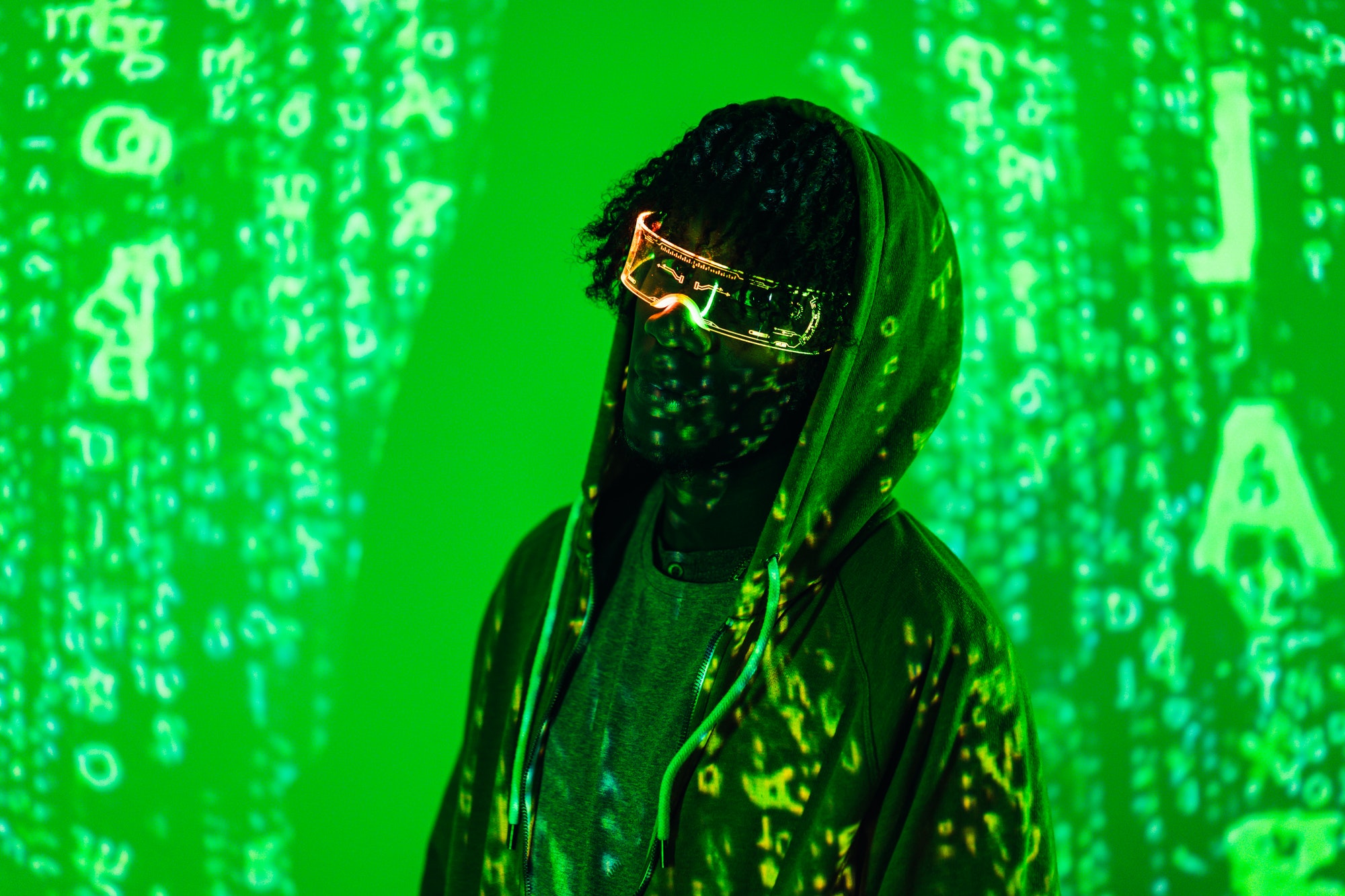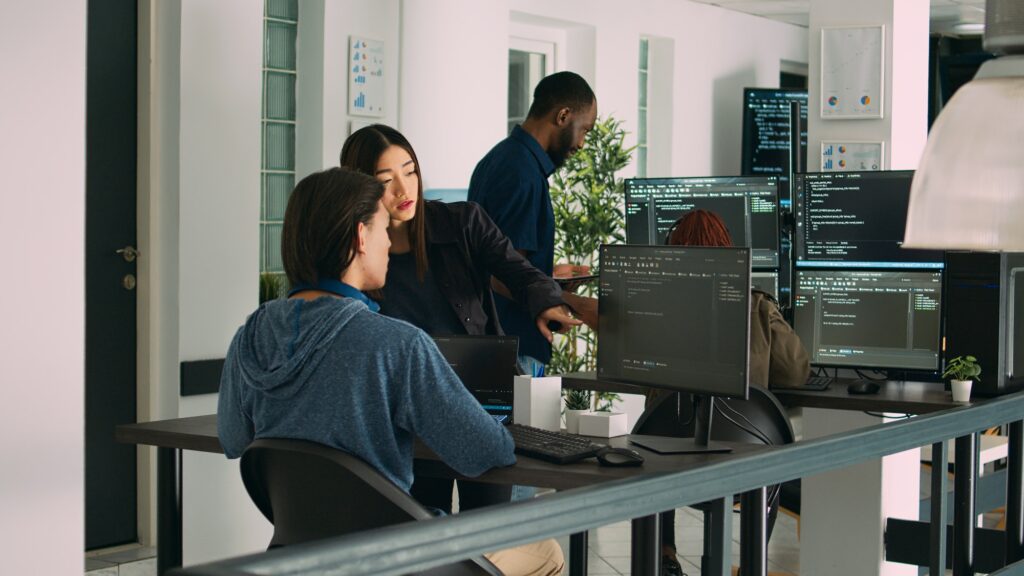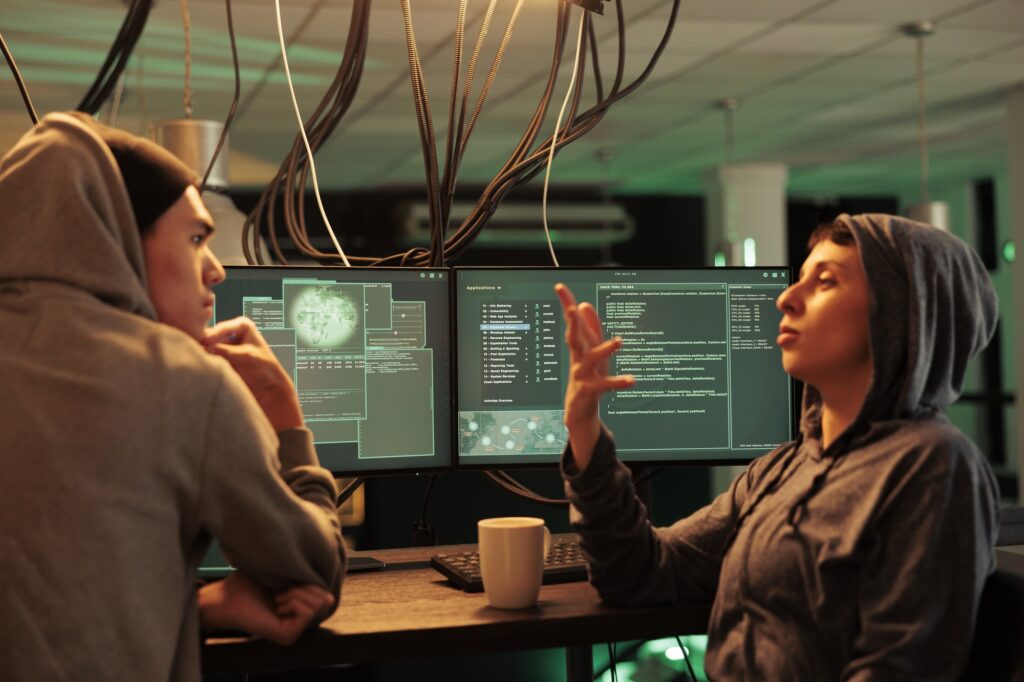Address
33-17, Q Sentral.
2A, Jalan Stesen Sentral 2, Kuala Lumpur Sentral,
50470 Federal Territory of Kuala Lumpur
Contact
+603-2701-3606
info@linkdood.com
Address
33-17, Q Sentral.
2A, Jalan Stesen Sentral 2, Kuala Lumpur Sentral,
50470 Federal Territory of Kuala Lumpur
Contact
+603-2701-3606
info@linkdood.com

Let’s dive into how AI technology and cybersecurity are linked, focusing on the risks like identity theft, and how we can prevent cyberattacks. We’ll also look at why cyber insurance is becoming a big deal today.

AI is super useful but it comes with risks, especially in cybersecurity. One big worry is people using AI for bad stuff, like stealing identities. As AI gets smarter, we need to be smarter about stopping these risks.
Identity theft is a huge problem in our AI-driven world. Bad guys are using advanced AI to get personal info, so everyone needs to be extra careful. This means knowing the tricks thieves use and having strong security to protect your info.
AI isn’t just for the bad guys; it’s a big help in stopping cyberattacks. AI can find and stop security threats way faster than old-school methods. Businesses using AI can really beef up their cybersecurity.
Data breaches are a nightmare – they can cost a lot of money and ruin reputations. You need a solid plan to deal with them, like updating your security, changing passwords, and maybe getting identity theft protection.

Phishing and malware are still big threats online. Teaching people how to spot these dangers is super important. Knowing about these threats is your first step in stopping them.
As our online world changes, more people are looking into cyber insurance. This can cover you for different online risks, like data breaches or identity theft. It’s important to understand what these insurance policies do and how they can help your cybersecurity plan.
If someone steals your identity, recovery services are super important to fix the damage. Also, keeping a regular check on your bank accounts can stop or catch any sneaky activities. These services are really important for extra safety in our digital world.
Protecting your computer and network from cyberattacks is a never-ending job. You need to use stuff like malware removal tools, keep your security software updated, and make sure your Wi-Fi is secure. Staying safe online means always being ready for new threats.

A1: The main risks include the misuse of AI for criminal activities like identity theft, advanced phishing attacks, and the creation of sophisticated malware. As AI technology evolves, these risks can become more complex and harder to detect.
A2: AI can analyze vast amounts of data to identify potential threats quickly, often spotting patterns that humans might miss. It can also automate responses to security incidents, making cybersecurity more efficient and effective.
A3: Immediately update your cybersecurity measures, like changing passwords and securing your networks. Consider contacting a professional for identity theft protection and monitoring your financial accounts for any unusual activity.
A4: Be wary of emails or messages from unknown sources, especially those asking for personal information or urging you to click on a link. Look out for misspellings, poor grammar, or anything that seems out of the ordinary.
A5: Cyber insurance helps cover the costs and losses related to cyber incidents like data breaches or identity theft. It’s important because it provides financial protection and support in managing the aftermath of a cyberattack.
A6: These services help victims of identity theft restore their personal information and secure their accounts. They often include assistance with legal processes, credit monitoring, and repairing credit scores.
A7: Regularly – at least whenever a new update is available. Software updates often include patches for security vulnerabilities that have been recently discovered.
A8: Yes! Use strong, unique passwords for different accounts, enable two-factor authentication where possible, be cautious about the information you share online, and always keep your software updated.
A9: AI can’t predict the future, but it can analyze trends and patterns to forecast potential cybersecurity threats, helping organizations prepare and respond proactively.
A10: Public Wi-Fi can be risky. Avoid accessing sensitive information like bank accounts when connected to public networks. If necessary, use a VPN (Virtual Private Network) for a more secure connection.
Sources PRNewsWire